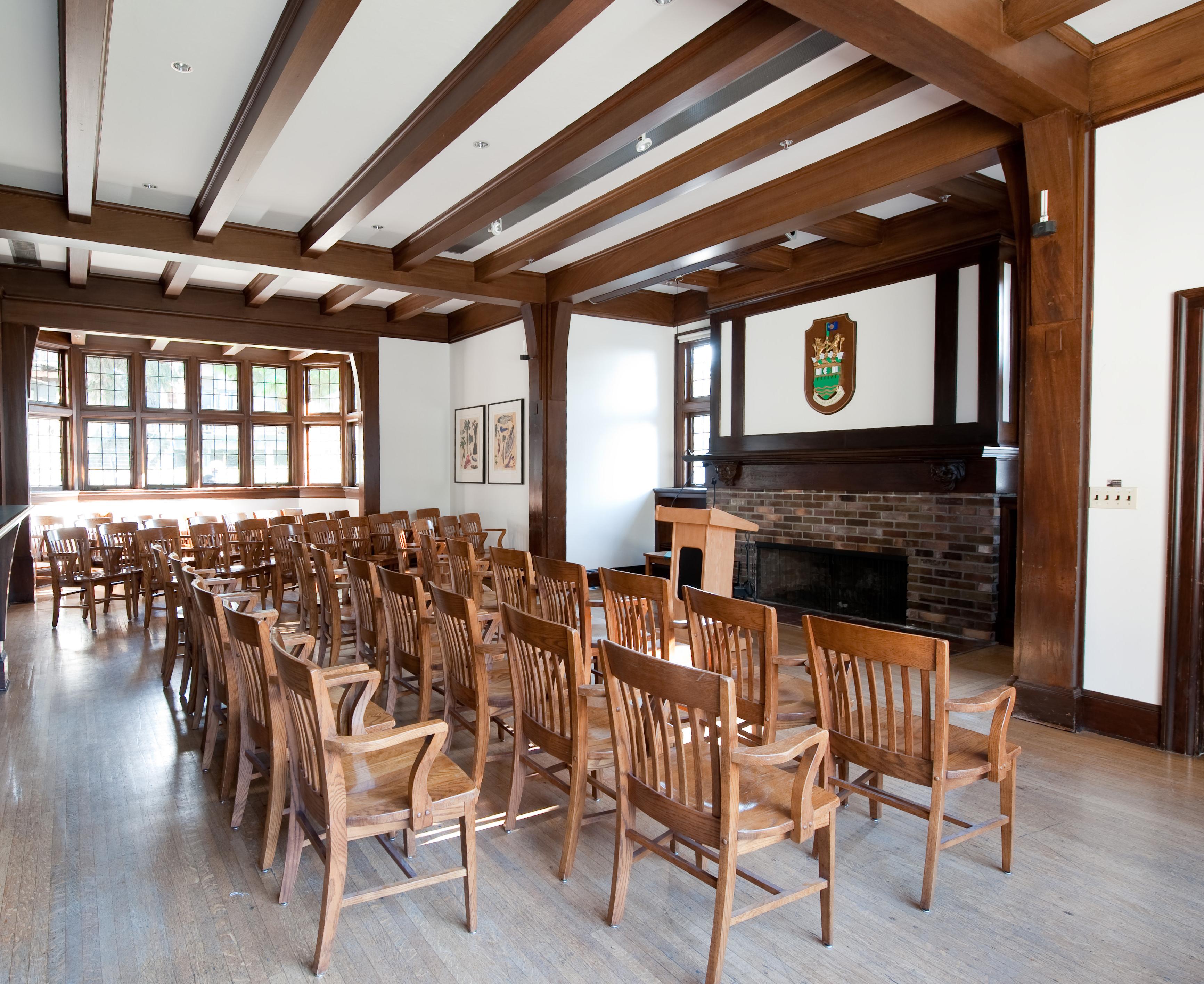
2020 Re-Visions: Thinking Other Futures Now
A Prospectus for Public Programs at Green College UBC in 2020-21
*
What does it mean to think in and from a university, now?
Universities—even when sited, as UBC-Vancouver is not, on an urban landscape—have traditionally been places set apart, where students at certain times of their lives and teachers and researchers by lifelong vocation enjoy privileged access to spaces favourable to learning, reflection, and discovery: classrooms, seminar rooms, libraries, laboratories, workshops, farms, botanical gardens... and university residences. By sending all but “essential” knowledge workers home and emptying dormitories, Covid-19 subverted that familiar geography of studious social separation. For most of us in universities in this new pandemic age, the spatial relation between home and work has been flipped: we are no longer going in to work or living on campus. Instead, like millions in our wider society, we are commuting 24-7 between our screens and any other spaces we can keep open—for thought, creativity, conversation, science, art, social and political critique, etc.—in a world that has suddenly closed in upon us, and far more sharply on others. However strategic the phrase “university thinking” might or might not have sounded as recently as a few months ago, our sense of its implications and our assumptions about its possible, desirable and necessary objects are currently undergoing seismic change. (This paragraph and the next are indebted to the John V. Clyne Lectures given at Green College in 2019 by Professor Robert Gibbs of the University of Toronto, on “The Future of University Study.”)
What does it mean to think in and from a university, now that the university has lost its physical distance—and hence, one might argue, forgone much of its constitutive difference—from the rest of society? Could the present health emergency, along with the other global emergencies that fill our screens in 2020, drive us to revise the roles and routines of what could be thought of as university study? Might that be one of the preconditions for beginning to think the alternative futures that university personnel will henceforth be tasked to bring to public mind and help to make reality? This much is clear: While the university as a place is largely off limits, we have an opportunity to consider afresh what takes place (t)here and also, if we choose, to reset our own and others’ expectations of how we will configure its distinctive amenities again, as and when we are re-admitted to them.
A place at once of and not quite in the university
Such a Covid-moment agenda has a special poignancy for Green College, named for a founding donor who studied engineering at UBC during the Spanish flu pandemic, a century ago. Cecil Green was a scientist and a businessman, a champion of university thinking and an advocate for the social utility of encouraging people in universities to think aloud, in assorted company, outside their disciplinary boxes and professional comfort-zones. The institution that his gift made possible—an interdisciplinary, residential academic community for just under one hundred graduate students and postdoctoral scholars, which also hosts free public programs and welcomes faculty and staff participation from all quarters—is an oddity at UBC and in the overall ecology of universities. It is at once of and not quite in the university, and pointedly so, since it was set up (on premises beyond the perimeter of the unceded Musqueam land originally “granted” to UBC in Point Grey) to give people at this university, or as many of them as were likely ever to find their way to the College, another place for thinking about what they and their colleagues were doing and about what they might do next. Themes and topics for our public programs over the last few years reflect that original mandate: “The Next Urban Planet: Rethinking the City in Time,” “Access to Justice,” “Hope in the Anthropocene: Sustainability Solutions and Inspirations,” “Worlds of Wonder: People Making Places Sacred,” “Living with the Dead: Heritage, Indigenous and Non-Indigenous Communities,” “Transforming Sounds / Altered Selves: How Music Changes in Time, Changes Us, and Changes Our Worlds,” “Truth in Art / Imagination in Science,” “The Future of University Study: Ideas in Dialogue,” “La Mise en Livre: The Book as Living Form,” “Security, Science and Law in the New Space Era,” “Mehfil: Music, Text and Performance of South Asia,” “Indigenous/Science: Partnerships in the Exploration of History and Environments.”
Thinking with all our human being, even in the flattening media of Covid time
Designed for communal living, “live” intellectual and artistic encounter, and dinnertable conviviality, Cecil Green’s college took the lockdown hard. Like the rest of UBC, it is re-opening with extreme caution. Until further notice, only Resident Members and staff will have access to the College’s grounds and buildings. In the meantime, as its programming goes entirely online for the first time, the College—or the most public side, at least, of its thinking aloud in company—is about to be thrown open as never before. At the time of writing (June), as would be the case in any year, our fall program is still a work in progress between many pairs of hands. By late August, and sooner for some series, it will be advertised at our website. Its formats will be new and largely experimental for us, its themes and topics as multifarious and multidisciplinary as ever at Green College. It will again interpret “university thinking” to mean thinking with all our human being—in words, image, music, bodily movement—even in the flattening media of Covid time. And it will, inevitably when not programmatically, actively rethink university places and the university’s place in society for the coming time. Watch this space! www.greencollege.ubc.ca